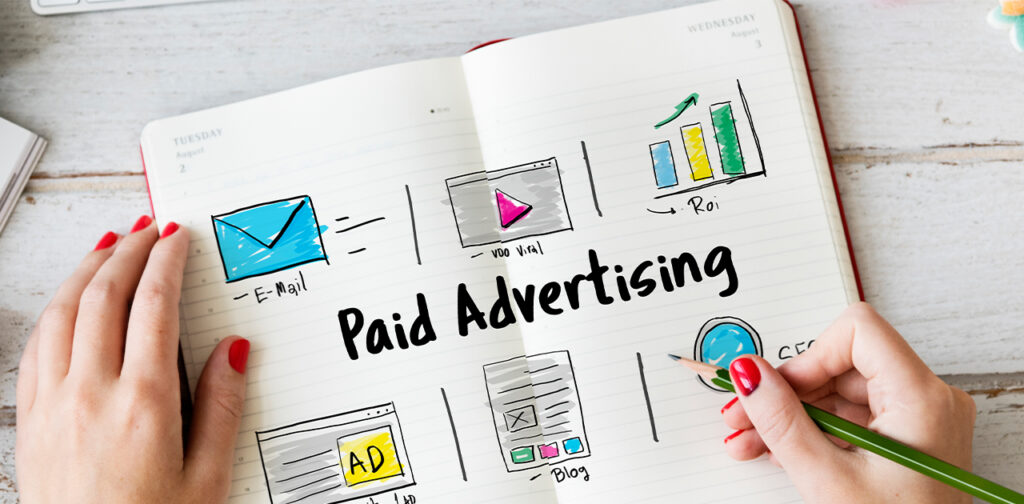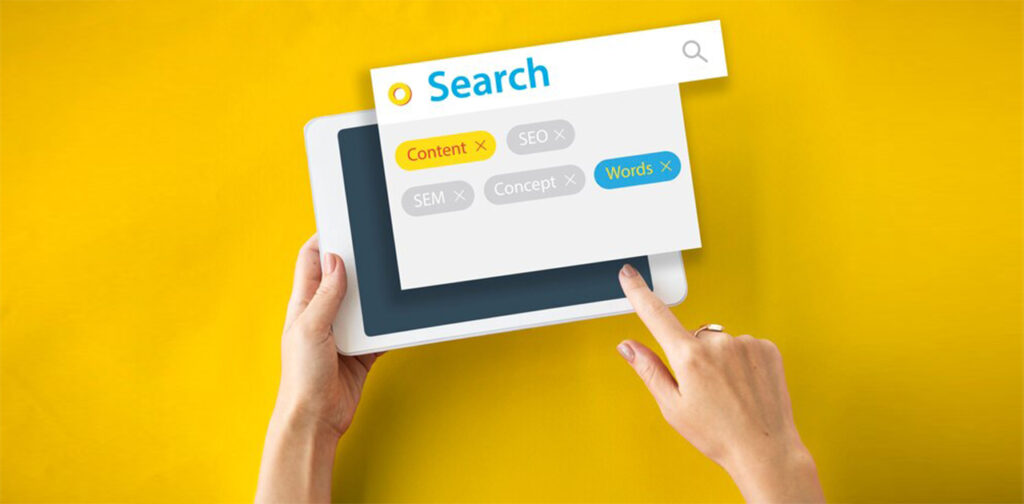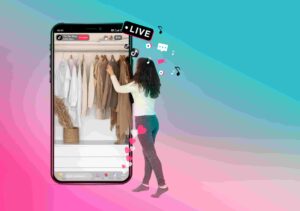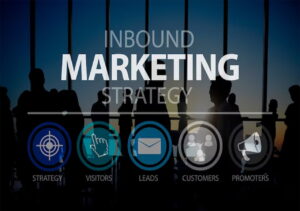
How a Google Ads Consultant Can Transform Your Business

Have you ever thought about how a Google Ads consultant could really help your business stand out? In today’s world, being visible online is super important, and having an expert on your team can be a game-changer.
Simply put, a consultant on Google Ads can lift your business by —
- making online ads work better,
- getting more people to notice you,
- and bringing in the right customers for more success and growth.
They’re like guides, using their knowledge to make your online presence really count.
Keep reading to discover the effective ways a consultant on Google Ads can make a big difference for your business with successful Pay-Per-Click (PPC) campaigns.
First, we’re going to learn about what Google Ads is.

What is Google Ads?
Google Ads is a marketplace where businesses buy online ads. To get it, you need to understand Google’s Search Engine Results Page (SERP).
Google tries to provide users with the best results for search queries. They base their results on a number of different factors, including trust, size, and relevance. As a result, Google’s search algorithm often gives preference to big-name brands.
Let’s say you type “camping equipment” in the search bar. The top results come from big brands like Cabela’s and REI. Small camping businesses are buried down below these big-name brands.
Now, Google Ads lets businesses promote themselves above regular search results. They do this by bidding on keywords in an online auction. The winner gets their website shown above the regular results on page
1. Google charges the business when someone clicks on their ad. They also track things like how often the ad is seen and how many people click on it so businesses know how well it’s doing.
Take a Look at the Below Statistics
Let’s look at these numbers:
- Google ads create 3.5 billion interactions every day.
- PPC Advertisers can get about a 700% return on investment for what they spend.
- 90% of people say ads affect what they choose to buy.
66% of shoppers like to buy things online instead of going to malls or stores.

What is a Google Ads Consultant?
In today’s fast digital world, people often use Google to find things they want to buy or services they need. Seventy-five percent of search engine users say that ads they see in the search results help them find what they’re looking for. To get customers, your ads should be easy to find. Here comes the power of a consultant on Google ads.
Simply put, a Google Ads consultant is a marketing expert who helps businesses run successful PPC advertising campaigns on Google’s search engine.
Here’s what they do:
Set Your Goals
Before you advertise, figure out what you want to achieve. Work with your Google Ads specialist to set SMART goals—Specific, Measurable, Achievable, Relevant, and Time-Based. For instance, if you aim to boost sales for a product by 20% by the end of the first quarter, you can link this goal to a specific AdWords campaign.
Google Ads allows you to set goals within the platform, focusing on:
- Increasing brand awareness
- Boosting product and brand consideration
- Growing sales
- Generating leads
- Driving website traffic
- Promoting your app
Setting clear goals helps Google Ads suggest improvements and keeps your campaigns aligned with your long-term objectives.

Set Key Performance Indicators (KPIs)
After deciding your goals, your Google Ads specialist will pick key performance indicators (KPIs) to keep an eye on. Their job is to watch over your campaigns and study the data to make sure everything is going well.
They look at things like:
- Impressions (how often your ad is seen)
- Impression rate
- Clicks (how many times people click on your ad)
- Clickthrough rate
- Conversions (when people do what you want after clicking)
- Conversion rate
- Quality score (how well your ad and landing page match)
- Return on Ad Spend (ROAS)
If the data isn’t looking good, they figure out what changes to make for better results. As your campaigns run, they keep track of your returns and help you make your PPC advertising more successful by improving your ROAS.
Create Your Landing Pages
Before you launch your ads, you need special pages for them. Ask your Google Ads specialist if they can create these pages. If not, they might hire another company to do it.
People will click on your ads and then check out these pages to learn more about your business. It’s crucial to make sure these pages match your ads. If they don’t, you might lose potential customers.
A good landing page should have the following:
- A catchy, relevant headline
- A clear subheading
- Easy-to-read info
- Happy client stories for proof
- An irresistible call-to-action (CTA)
- Opportunities that catch people’s attention
- Great pictures
A weak landing page might make you lose leads and conversions.

Create Persuasive Ads
Making your ads and pages interesting is crucial to turning clicks into actual actions. Your AdWords consultant will help write words that persuade and grab attention. They make sure your words show how valuable your product or service is.
Your ads should be personal and focus on the customer. They need a call to action that pushes people to do something.
If your product or service doesn’t sell itself, your ads and website should do it. Your AdWords consultant will check if your words are doing what you want.
If not, they’ll make changes to help you create ads that persuade and get better results.
Monitor Your Quality Score
Google decides how high your ads show by figuring out your Quality Score. This score looks at different parts of your ads and campaigns, such as —
- how likely people are to click,
- how relevant your ad is,
- and how good your landing page is.
Your score is a number from 1 to 10.
A higher Quality Score might make your cost per click (CPC) lower and help your ad show up in better positions. The better your ad’s position, the more chance people will see and click on it.

Good Practices to Boost Quality Score
Your AdWords consultant can follow some good practices to boost your Quality Score. For instance, they can make your website more user-friendly. If your site loads slowly, it might annoy users and make them leave, hurting your score.
If many people quickly leave your site or don’t click your ads, it can hurt your Quality Score. For instance, negative mobile experiences greatly impact future purchases—regardless of your campaign’s beauty or data. In fact, they make people 62% less likely to buy again.
Your consultant can organize your ads better by putting them into specific groups based on one keyword each. This makes your ads more related to what people are searching for.
Making your ads more personal can help, too. If people aren’t clicking your ads much, they might not be interested. Testing different versions of your ads helps your consultant find the ones that get more clicks.
Also, your landing page needs to match your ads. Google checks to make sure they go together. Your consultant might make special pages for your ads to make sure they match.
Test and Improve
Trying out different things, like changing words or pictures on your site, might make more people do what you want. Your AdWords team can test and improve your ads to get better results. Instead of making changes randomly, they use A/B testing.
With A/B testing, your team makes small changes to one part of your ads. For example, they might change the words on your landing page or the main part of your ads. Then, they compare the results between versions A and B.
As time goes on, your team gets the info they need to create ads that work really well.

Implement Tracking
Before you start showing ads, you must set up tracking. Your Google Ads expert ensures the tracking code is ready for your campaigns.
If the technical side of your website confuses you, setting up digital tracking can be tricky. Without it, you can’t start advertising. Failing to set up tracking means no data to improve your campaigns.
Improve Your Campaigns
Once your ads are ready, your Google Ads specialist keeps an eye on the data. They use this info to make clever changes to your campaigns.
For instance, they can add “negative keywords” to your ads to avoid showing up for searches that don’t matter. Every click on your ad costs money, so avoiding unnecessary clicks is smart.
Making continuous improvements to your campaigns helps you get more out of your advertising investment.

Benefits of Hiring a Google Ads Consultant
A consultant on Google Ads can help get more people to visit your website by reaching out to a larger audience.
- Improved conversion rates: They’re experts at creating ads that make more visitors turn into happy customers, helping your business grow.
- Reduced advertising costs: Let them fine-tune your ad strategy, making sure you get the most out of your budget without spending too much.
- Access to expertise: Tap into their deep knowledge of Google Ads and digital marketing to make your online presence shine.
- More time to focus on your business: Outsource your Google Ads management to have more time for what matters – running and growing your business.
- Improved ROI: See better results from your investment in Google Ads, with the consultant making sure it pays off well.
- Stay ahead of the curve: They’ll keep you updated on the latest Google Ads trends and best practices to keep your business ahead.
Peace of mind: Knowing a pro is handling your campaigns brings peace of mind, letting you focus on other aspects of your business.

How a Google Ads Consultant Can Transform Your Business
Google Ads-based consultants have helped businesses in a big way by using Google Search Ads. These ads blend in with search results, just like regular listings, which might be surprising. Because people trust Google to show good and reliable content, the results at the top are more likely to be clicked.
Let’s see how consultants on Google Ads have really helped the two businesses below with examples of Google text ads.
Example 1: Bright + Early Transformation
If you search on Google, you’ll see an ad for Bright + Early that talks about a common problem for its audience: turnover.
Let’s review what makes this ad clickable for the right target audience:
- Clear value proposition: The ad says clearly what it’s about with the headline, “Say Goodbye to Turnover – HR That’s True To Your Culture.”
- Relevance to the target audience: The ad talks directly to the audience by saying it can customize HR programs to fit a unique company culture.
- Appeals to modern HR thinking: The ad mentions creating creative and inclusive programs that match what modern HR professionals like.
- Benefit-oriented language: Instead of just listing features, the ad talks about positive outcomes and solutions for dealing with turnover.
- Concise and engaging: The ad is short and to the point, with sentences that grab your attention and make the message clear.
- Implicit call-to-action: The ad encourages you to learn more by clicking on it, guiding users to get more involved.
Proper extensions: The ad has extra things like a picture and links to the website, making it more interesting and giving more chances for interaction.

Example 2: ClickUp
Google Ads-based consultants have really helped businesses, and let’s see how they transformed ClickUp:
Click Up Transformation
In the world of small businesses with teams, everyone knows about ClickUp. They proudly call themselves “The Ultimate Productivity Tool,” and their Google search ad tells us why it’s great.
- Branding: The ad shows the name “ClickUp” many times so that people remember it easily.
- Clear value proposition: It says ClickUp is the “Simple and Powerful – The Ultimate Productivity Tool,” making it clear why you should use it.
- Social proof: They mention a big number, “800,000+ Teams,” to show that lots of people use and trust ClickUp.
- Free plan: The ad says there’s a “Free Forever Plan,” which is a good way to get people interested who want to try it without paying.
- Feature highlights: It talks about all the things ClickUp can do, like “Manage Tasks, Docs, Goals, And Projects” and having “Features For Everything” to show it’s really versatile.
- Call-to-action: The ad tells you to “See All The Features,” encouraging you to explore everything ClickUp can do.
Display Ads show up on websites in the Google Display Network (GDN). They might not catch your eye right away, especially if you’re focused on what you’re reading. But if they’re designed well, they can grab the attention of the people they’re meant for.
Let’s take MongoDB Atlas’s ad as an example, which has a bright green box and a promise: “Get your ideas to market faster.”
Example 3: MongoDB Atlanta
Let’s explore why this ad works:
- Clear and aspirational message: It starts with a simple and aspirational message, saying, “Dream it. Build it. Deploy it. Let’s build the next big thing.”
- Benefit-oriented language: The ad talks about the benefits of using MongoDB Atlas, like getting your ideas to market faster and using the industry’s first developer data platform.
- Call-to-action: It tells users clearly to “Try MongoDB Atlas for free” and to “Visit Site,” giving a direct invitation to take action.
- Concise and impactful: The ad gets its message across using short phrases, making it easy for people to understand the important points quickly.
- Focus on developers: By mentioning the “DEVELOPER DATA PLATFORM,” it suggests that MongoDB Atlas is made specifically for developers, showing it’s aimed at a certain audience.
YouTube Video Ads are quite noticeable on the web. Some let you skip after a few seconds, while others make you watch the whole ad before you can go back to what you were watching.
Even though some find them annoying, they are effective. Many people can’t resist some video ads, especially if they’re interesting and come at the right time.
Here’s an example you might have seen on YouTube:

Example 4: Grammarly Business
In this video ad, Grammarly is showing off its product, doing what it does best. This helps viewers learn about Grammarly and get interested in using it.
This ad talks about Grammarly’s new feature called Knowledge Share. It lets business users share documents using external systems like Google Drive.
What makes this video ad stand out:
- The pain point is on point: It’s not the usual Grammarly ad. This one focuses on a unique problem: getting rid of data silos in organizations using its Knowledge Share feature.
- Adds the human touch: Instead of just words on the screen or a voice talking, a woman guides viewers through the ad, explaining the new feature and its benefits. It’s a more personal way to introduce a product.
- Real-life example: The ad shows a real example of how the feature works and adds value. This helps viewers imagine themselves using and benefiting from it.
Engaging graphics: Throughout the ad, there are visuals of the Grammarly platform, a person speaking, and graphics to keep the ad interesting to watch.

How to Choose the Right Google Ads Consultant
Finding the right consultant on Google Ads can be a daunting task, but it’s crucial for maximizing your digital advertising efforts. Here are some key tips to guide you.
Look for Experience
- Ask about their experience managing Google Ads campaigns for businesses similar to yours.
- Inquire about the specific industries and verticals they’ve worked in.
- Check their portfolio for case studies of successful campaigns they’ve run.
Verify Their Certifications
- Google Ads offers various certifications, such as Google Ads Search Certified and Google Ads Display Certified.
- These certifications demonstrate the consultant’s expertise and knowledge of the platform.
- Ask for proof of their certifications and ensure they’re up-to-date.
Read Reviews and Testimonials
- Check online platforms like Google My Business, Clutch, and Upwork for reviews and testimonials from past clients.
- This will give you insights into their work ethic, communication skills, and ability to deliver results.
Discuss Your Needs and Goals
- During your initial consultation, clearly explain your business goals, target audience, and budget.
- Ask specific questions about how they will approach your campaign and what strategies they recommend.
- Ensure they understand your unique needs and can tailor a solution accordingly.
Consider Their Communication Style
- Choose a consultant who is responsive, transparent, and easy to communicate with.
- Regular communication is essential for ensuring your campaign is on track and meeting your expectations.
- Ask how they will keep you updated on progress and performance.
Compare Rates and Fee Structures
- Get quotes from multiple consultants to compare their rates and fee structures.
- Beware of consultants who offer suspiciously low rates, as they may cut corners on service or expertise.
- Consider the value they offer and choose the one that best fits your budget and requirements.
Build Trust and Rapport
- Ultimately, choosing the right consultant is about finding someone you trust and feel comfortable working with.
- Pay attention to your gut feeling during the consultation process.
- Choose someone who is passionate, enthusiastic, and genuinely invested in your success.

Your Guide to Generating Business With an AdWords Consultant
Don’t wait to give your business a boost. Think about the good things that can happen by talking to an expert AdWords consultant. They can help you make ads that really work and bring in more business.
If you want to talk about how to market your business, start by contacting us. Your first and best marketing choice begins right here! Get in touch today to begin.
Wrapping Up
In simple words, having a Google Ads consultant can really change your business for the better. They help you make effective ads and bring in more customers. If you want to see a positive change in your business, considering a consultant on Google Ads is a smart move. They know how to make your business stand out through digital marketing and get more attention.
FAQs
What is a good CPC rate?
A good cost-per-click (CPC) rate depends on how much money you make compared to what you spend. For example, if you spend $1, you’d want to make at least $1.20 in return, at the least. Ideally, a really good CPC rate is getting $2 back for every $1 you spend.
Is Google Ads worth it for a small business?
Yes, Google Ads is worth it for a small business. The fact that more than 95% of Google’s annual revenue, which is over 60 billion dollars, comes from Google Ads shows that many businesses, including small ones, find value and success in investing in this advertising platform.
Which is better, CPM or CPC?
Choosing CPC (Cost Per Click) is better for getting more value for your money. You only pay when people click on your ad, reaching those who are interested and leading to more sales and revenue. If you aim for brand awareness, CPM (Cost Per Mille) is a good choice.
“Slow down and enjoy life. It’s not only the scenery you miss by going to fast – you also miss the sense of where you are going and why.”
– Eddie Cantor
Morbi leo risus, porta ac consectetur ac, vestibulum at eros. Nulla vitae elit libero, a pharetra augue. Nullam id dolor id nibh ultricies vehicula ut id elit. Cras mattis consectetur purus sit amet fermentum. Duis mollis, est non commodo luctus, nisi erat porttitor ligula, eget lacinia odio sem nec elit.
Curabitur blandit tempus porttitor. Morbi leo risus, porta ac consectetur ac, vestibulum at eros. Fusce dapibus, tellus ac cursus commodo, tortor mauris condimentum nibh, ut fermentum massa justo sit amet risus. Cras mattis consectetur purus sit amet fermentum. Maecenas faucibus mollis interdum.

Solayman Rumon
A writer, blogger, and traveler. Being creative and making things keep me happy is my life motto.
Popular Posts


10 Proven Tips to Increase eCommerce Sales in 2024

eCommerce Sales Funnel Strategies for eCommerce Success

37 Best Proven Tips to Increase Your eCommerce Conversion Rate

TikTok Marketing: Creating a Successful Strategy in 2024

15 Tips for Building a Successful Omnichannel E-commerce Strategy

21 Best Inbound Marketing Strategies for E-commerce Success

16 Must-Have Facebook Strategies for E-commerce
More Posts

18 Best eCommerce Design Agencies in 2024

7 Tips on How to Build an Ecommerce Website from Scratch

10 Proven Tips to Increase eCommerce Sales in 2024


